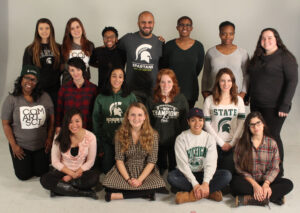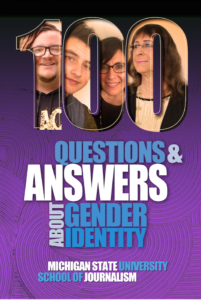Two events related to whether Black should be capitalized in news copy converged this week.
The first was a statement Thursday by the National Association of Black Journalists that Black should be capitalized when used in the sense of ethnicity, race or heritage.
The second was an email from a former student whose newspaper is discussing whether to capitalize Black.She wrote: “the staff is debating whether to capitalize the ‘B’ in Black … Could you point me in the direction of any additional resources that can help me push them a little further on this? The staff is concerned that if they capitalize Black, they should also capitalize ‘brown’ and ‘white.'”
This is part of what I told my former student:
Understand first of all that, although we call the AP Stylebook the bible of the industry, it is far from that. It changes its own rules every year, and between annual updates, too.
Many, maybe most, news organizations make exceptions to AP style, often based on local considerations. Making an exception to AP and defending/explaining it is a legitimate, deliberate journalistic judgment call. Following style rules without any other rationale is indefensible. It amounts to outsourcing your news decisions.
I believe it is time AP changed this rule and that it will soon. But we don’t have to wait. The Bias Busters series broke with that rule five years ago.
In 2015, when students on campuses across the country were waging Black Students Matter campaigns, a group in the Michigan State University School of Journalism began creating “100 Questions and Answers About African Americans,” part of our Bias Busters series.
The students (Black, White, Asian, Hispanic and Palestinian) asked why Hispanic, Latino, Asian, Native American and Indian American were capitalized but black was not. The answer, of course is that most of those words (not native) are proper nouns. Black is the name of a color.
However, when used in a racial context, Black is not a color. It implies an ethnic/racial/cultural heritage. It has a meaning more like the other groups. Making this the sole group referred to in lower case is hurtful and carries a not-so-subtle implication of inferiority. I told the students that, as the authors of the guide, they could make the call, and we would carry it through the rest of the series.
My sole stipulation was that if Black were to be capitalized when referring to race, ethnicity or culture, White would be, too. At the time, some white supremacists were capitalizing White but not black. Some African American organizations were capitalizing Black but not white. This seemed to be spiteful and inconsistent.
The students voted to capitalize Black and White and subsequent books in the series have ever since. It just seems to be accurate and fair.
Now, five years later, we are waiting for the AP to catch up to those students. I think it will. How long can it insist upon this inconsistency or deny the meaning of the word in social contexts? How long does the AP want to maintain a convention that is repeated hundreds of times daily and seems to reinforce systemic racism?
It is no great contradiction for a newsroom to decide that AP is behind the times on this one and to make yet one more exception to the bible of the news industry.
“100 Questions and Answers About African Americans” is available from Amazon or the Front Edge Publishing bookstore.




















